Three great books about human history
Here, three history books are reviewed. I think they're great.

In the German language, the word Geschichte means history.
But it also means story.
People are interested in history because it is the story of where we all came from, of how we got here, and why things are the way they are today. In its widest sense, the story of history explains how human beings evolved from bacteria, formed civilisations, and voted for Brexit.
Here are three great books about history.
I think reading them would equip any person interested in the human story with decent and wide ranging knowledge. Importantly, you'll get a broad and balanced perspective for the short, long, and evolutionary time scales.
These perspectives comes from curious and intelligent minds, who, between them, cover many different academic disciplines that extend far beyond just "history".
A practical note about where to buy books and how to download them for free
These books can obviously be bought in the traditional physical way or purchased digitally. But they could also be downloaded for free from the website: https://www.pdfdrive.com/ and then sent to a Kindle device or software app on a phone, as explained on this website: https://mytbr.co/how-to-email-books-to-kindle/.
Personally, I really recommend the Kindle software app on a mobile device or personal computer, and the Kindle hardware itself, which is great for storing and reading books. Generally I prefer to read books digitally now.
Alternatively, you can listen to them at Audible, where free trials lead to free book downloads, where more free trials get more free books - the choice is yours. Listening to books is a fantastic way to consume the information if you a bit tired or are performing another task, like driving to work, working, or cooking dinner. I think many people prefer listening to audio and I can see why, it's really very good!
I personally buy books physically, digitally, but also download them for free, listen for free, and finally pay for listening, sometimes - I like exploring my options! Historically, there has genuinely never been a better time to access books, and hence access and understand the wider world around us.
Pretty cool.

We start with the most readable book first. It's also a profound book with many original ideas that will get you thinking.
My favourite thing about this book, though, is how it is written. It's hard to write informative, great, and easy-to-read books.
But this is one of them.
The reader is taken on a journey of human co-operation, where the author identifies the Cognitive Revolution of approximately 70,000 years ago as key. There, humans were equipped with complex cognitive machinery, which allowed them to invent and share increasingly more sophisticated stories with each other.
Without the ability for telling stories, humans would not be able to co-operate on large scales, rally around causes, or "buy- into" abstract concepts, like human rights, corporations like Peugeot, or the rule of law.
The reader will learn about more recent history, too. Specifically, the history of money, empire, and religion.
I particularly enjoyed the authors take on empire, which puts the British Empire in its rightful context, and gives a realistic perspective of what empires are, what they are not, and how to think about them.
Finishing his book filled me with ideas, because it starts with the story of physics, journeys across the world and through time, and finishes with speculations about the human future, and what it means to be happy.
People rate this book for a reason!
Highly recommend.
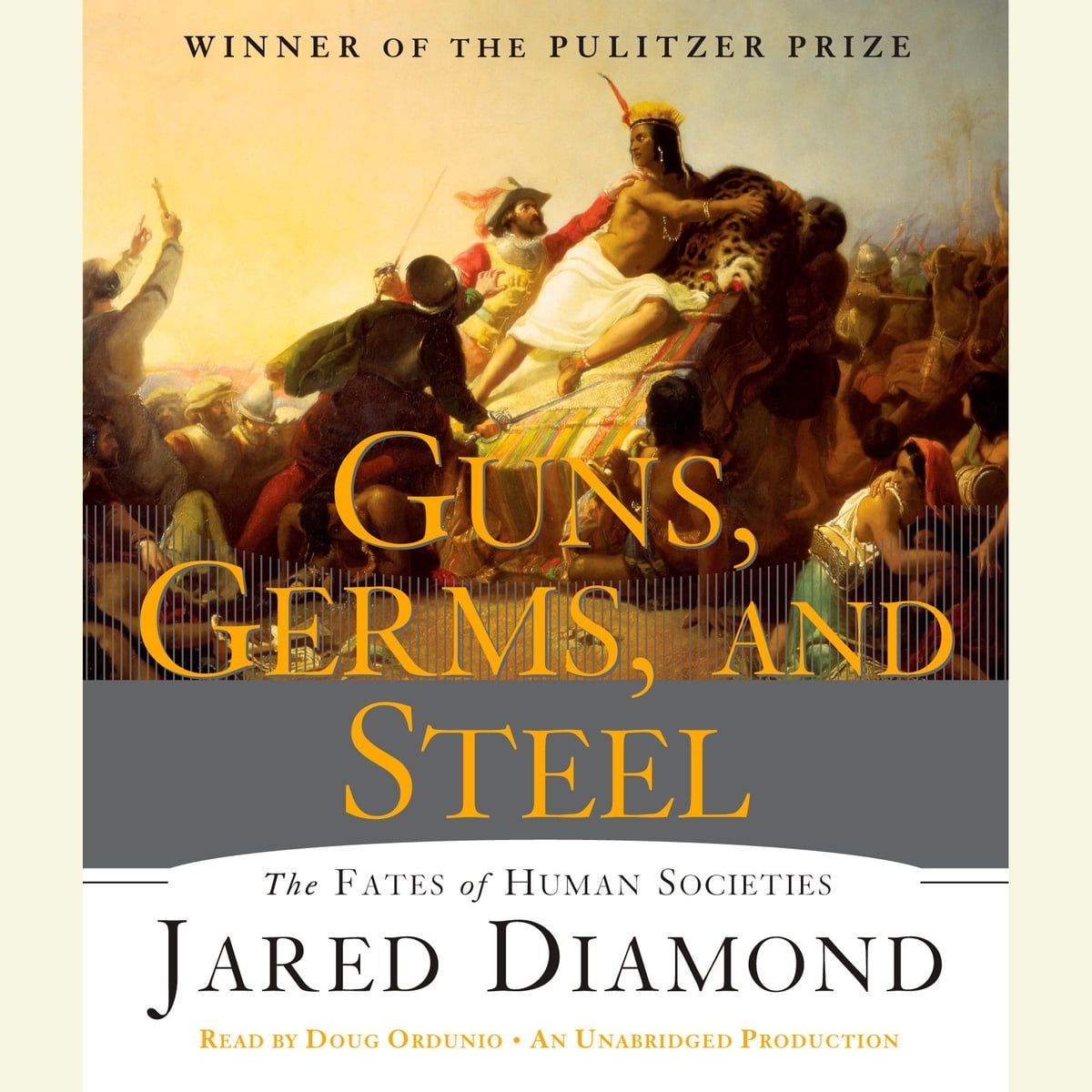
In my view, this book is a step above Sapiens. Though it is not written so brilliantly and with ease, the concepts covered in this work are stunning.
The author tries to answer the question: Why did the world turn out the way it did?
In other words, why did the Europeans conquer the Native people's of the world, and not the other way around?
Perhaps there is something genetically superior about being European compared to being Australian Aboriginal, Native African, or American?
The author has written this book to reject this view. Specifically, that there is nothing biologically superior about Europeans - the answers lie elsewhere.
The answers, according to the author Diamond, lie in plant and animal genetics, their domestication, weather patterns, food production, the allocation of scarce resources, the archaeological and linguistic record, the political structures of emerging powers, and in the interconnected trade and disease networks that characterise the Eurasian continent.
In other words, it's complicated.
An answer to the above question requires drawing on scientific and historical analyses from a range of fields, often being interlinked and expanded upon. The book is a wonderful intellectual synthesis - and is easily one of the best, most impressive books I've ever read (I listened to it).
What's more, I love the authors background, who is a biologist by training, but has spent years living alongside New Guinean hunter-gatherers, learning their languages, and reading history. Diamond's unique background is what makes this book about history what it is.
A masterwork. And a must read.
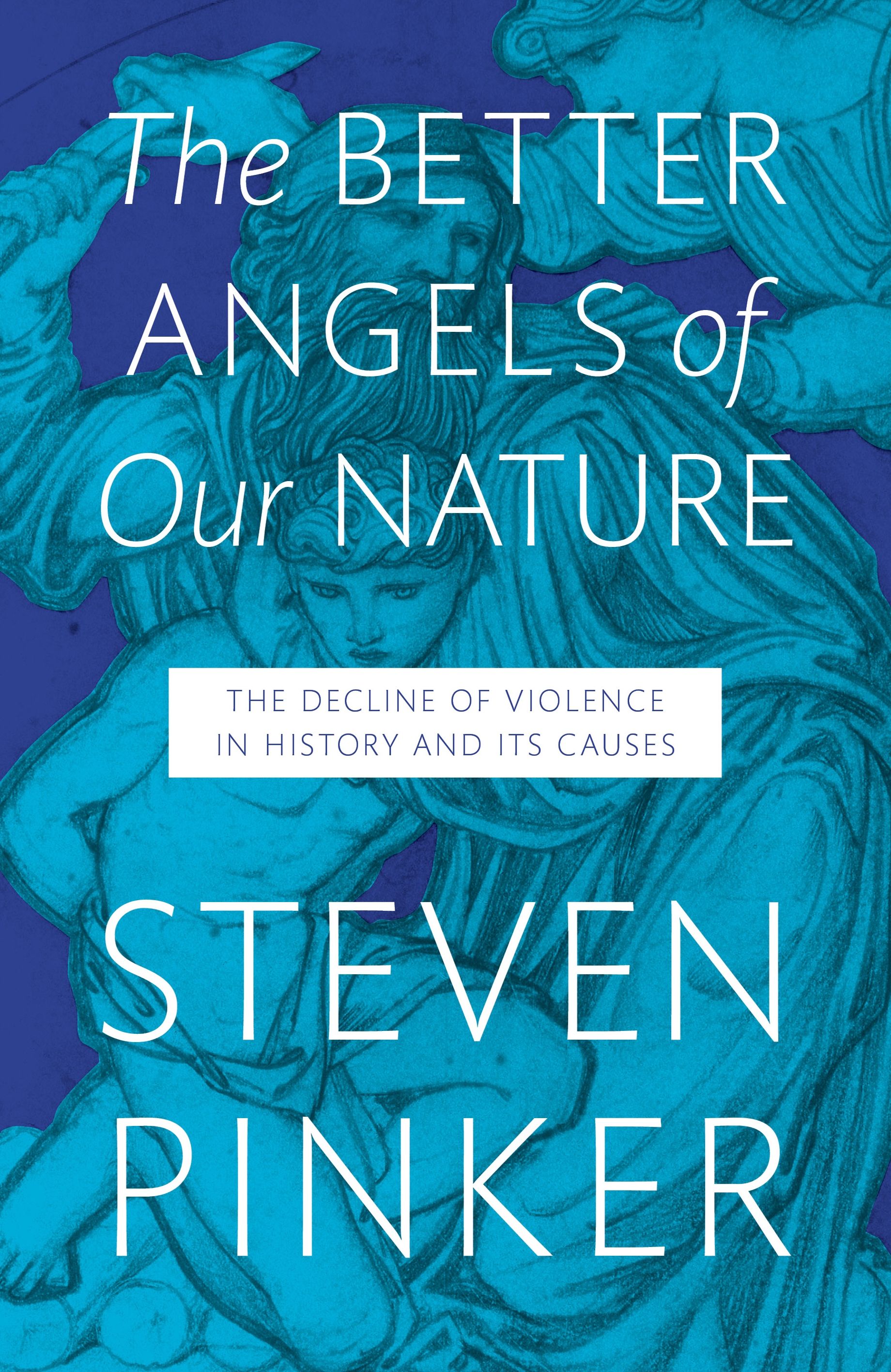
What could be better than the above two books? Well, it's Pinker's tome on human history, which looks specifically at why violence has declined.
To begin with, this book is also an intellectual rollercoaster.
Reading this book introduced me to so many concepts that I had never really come across before in the context of understanding history. It introduced me to statistics, evolutionary biology, economics, anthropology archaeology, evolutionary psychology, cognitive science, law, and philosophy.
When I'd studied history at school and later at university, I'd had this sense that human progress was real. In Tudor England, for example, our leaders burned citizens at the stake - something unimaginable in England today.
I had an intuitive sense that progress was real. What Pinker did was confirm these beliefs of mine, but expand upon them in exponential ways.
There are so many different things to analyse in history, and Pinker's ability to synthesise knowledge from diverse domains and weave together a coherent argument really is impressive.
Anyone who gets through this 800 page masterwork will be left with much to think about, and certainly have a stronger conception of what it means to take the long-view, to have perspective, and identify real trends in our shared history.
To my mind this book is the best of the three, but perhaps it's because of the personal impact it had on me. I loved the creative network of ideas presented in the book, and the intellectual world I felt like it opened up for me.
Sometimes a student needs a great teacher to facilitate their educational journey, and Pinker's work was exactly that for me. I finished the book with far more questions ready to ask than I had questions answered.
And that's what great books do - they leave the reader wanting to go out there and discover things for themselves.
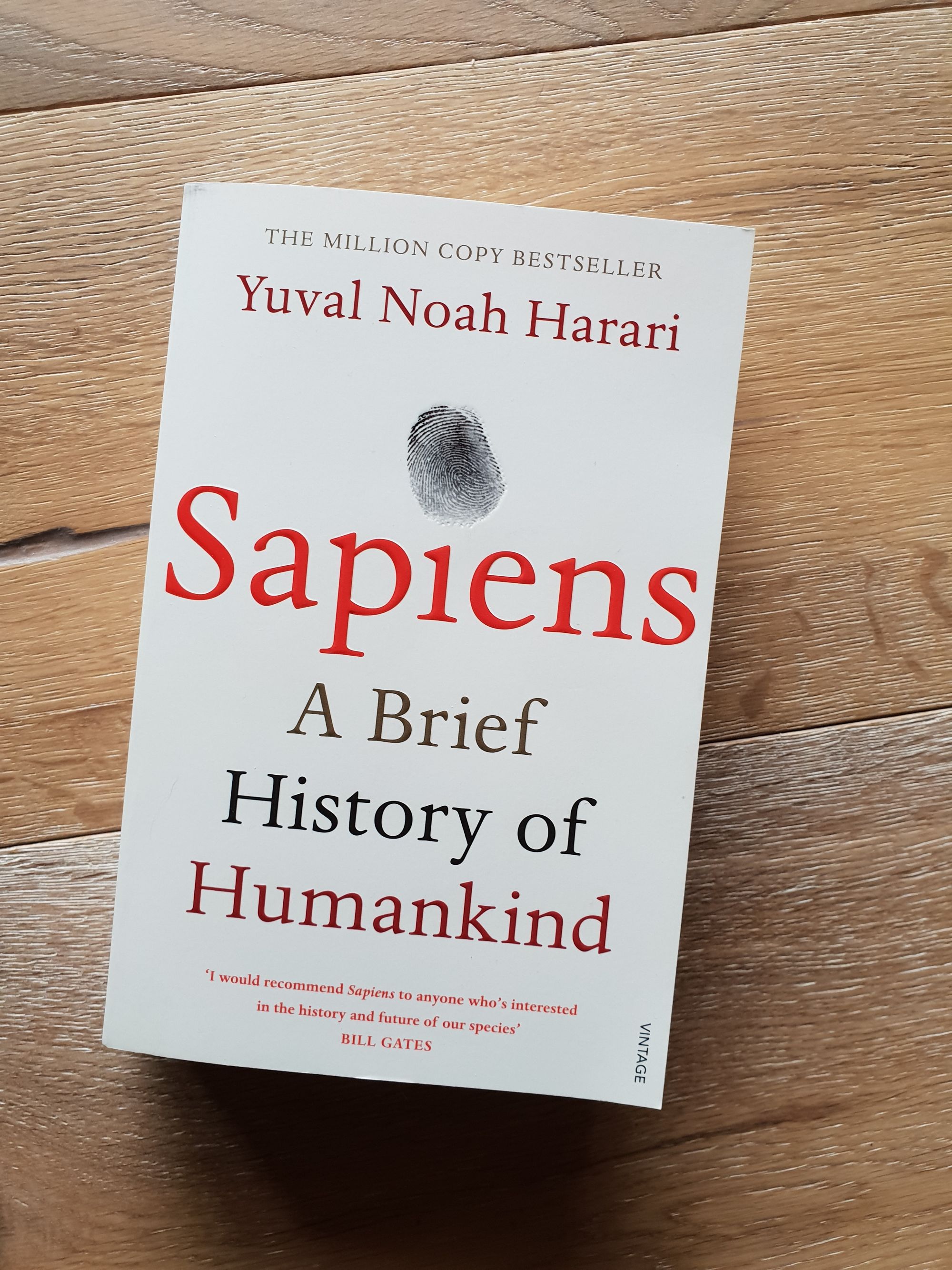
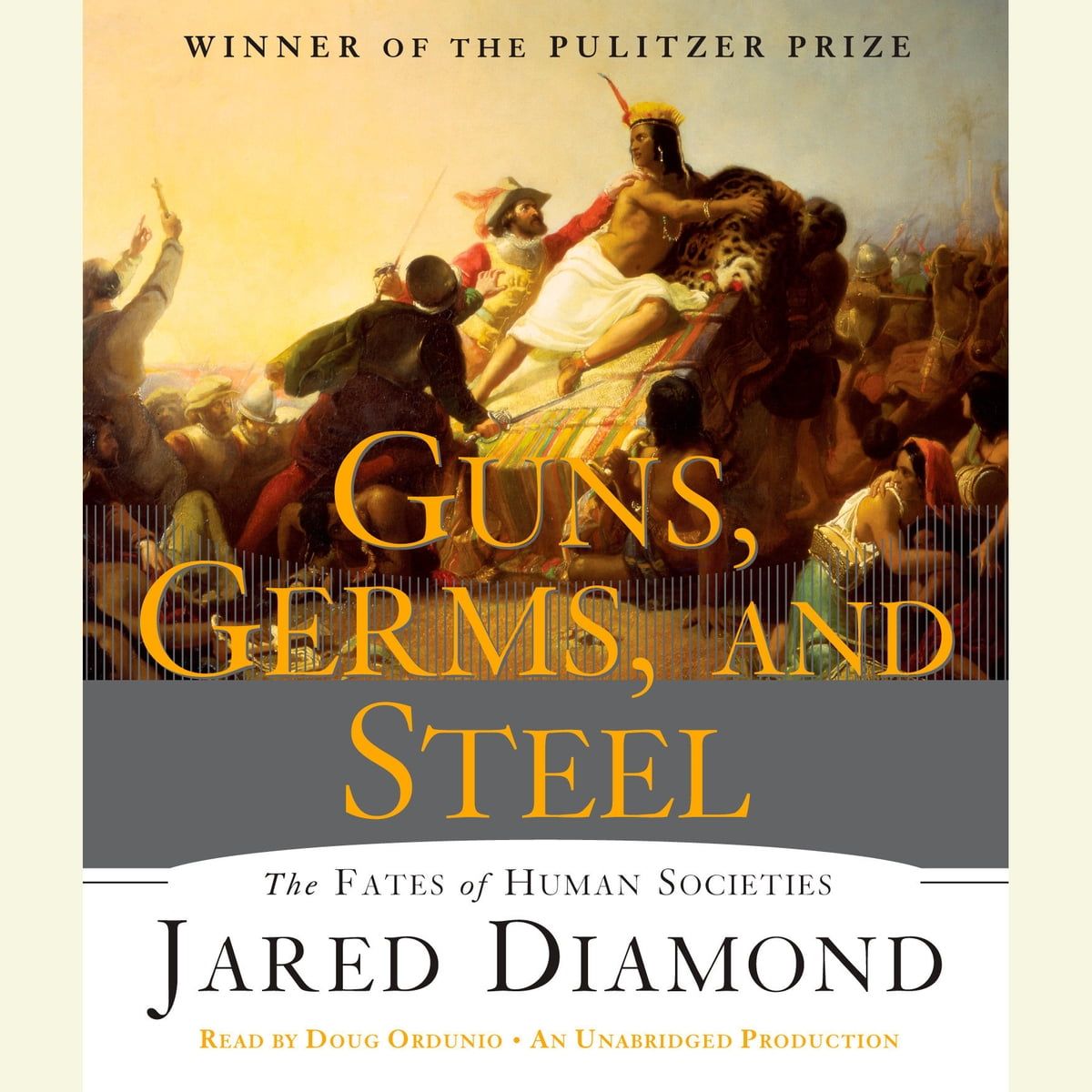
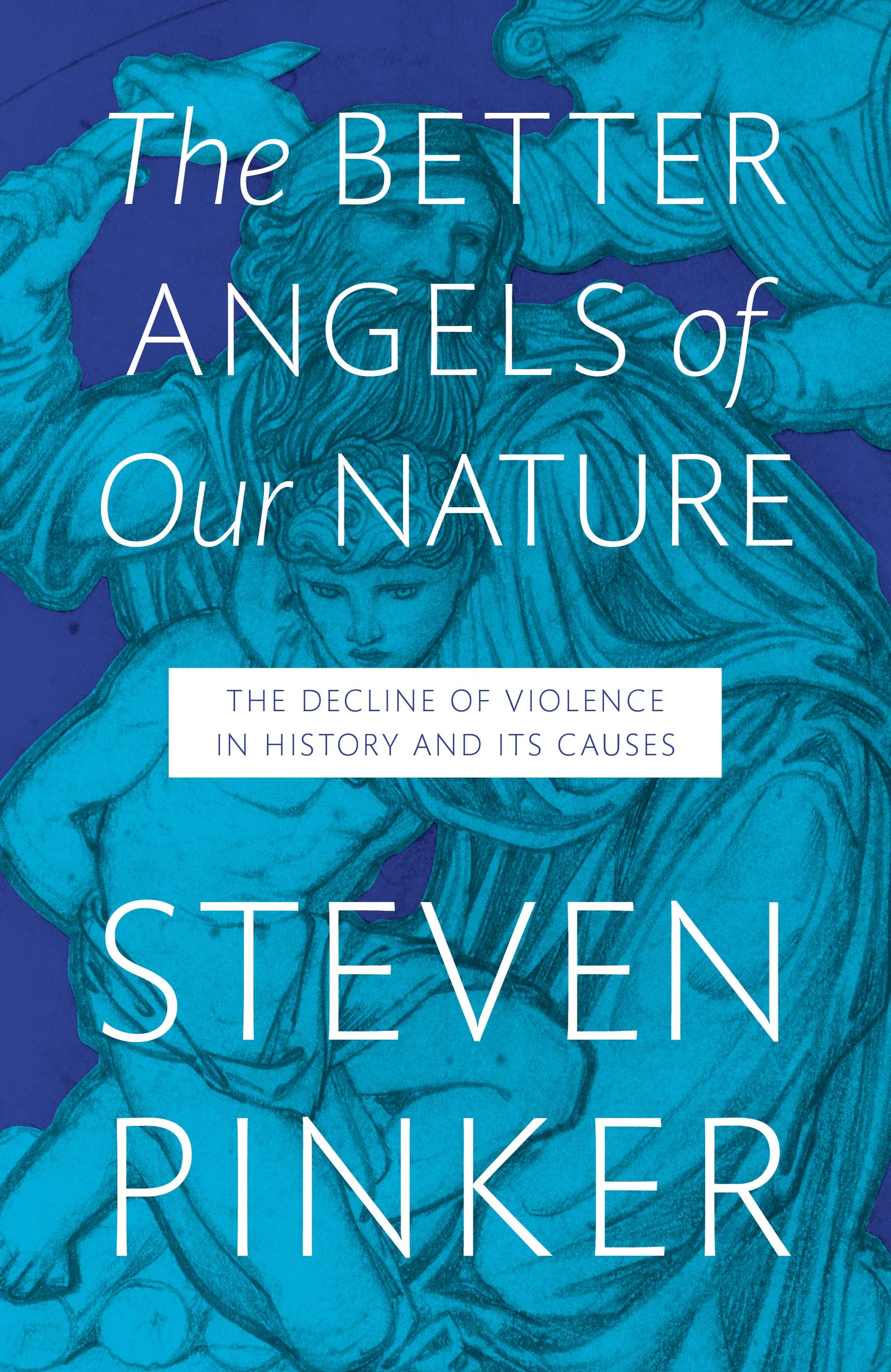
All three books are (in my opinion) great books. They all left me full of ideas and excited to learn more.
More than this, they convey a sense that when studying history, the more we think we know, the more we realise there is to know.
This is something of a paradox of knowledge, and it worth remembering that the study of history is incredibly complicated, fraught, and we should all be careful about creating our own stories about what happened in the past, and what it might mean for us today.
After all, when we are talking about "history" - we weren't there.
And a key historical fallacy is ascribing our own beliefs, emotions, and prejudices onto events and people in the past.
Reading great books helps, though!
